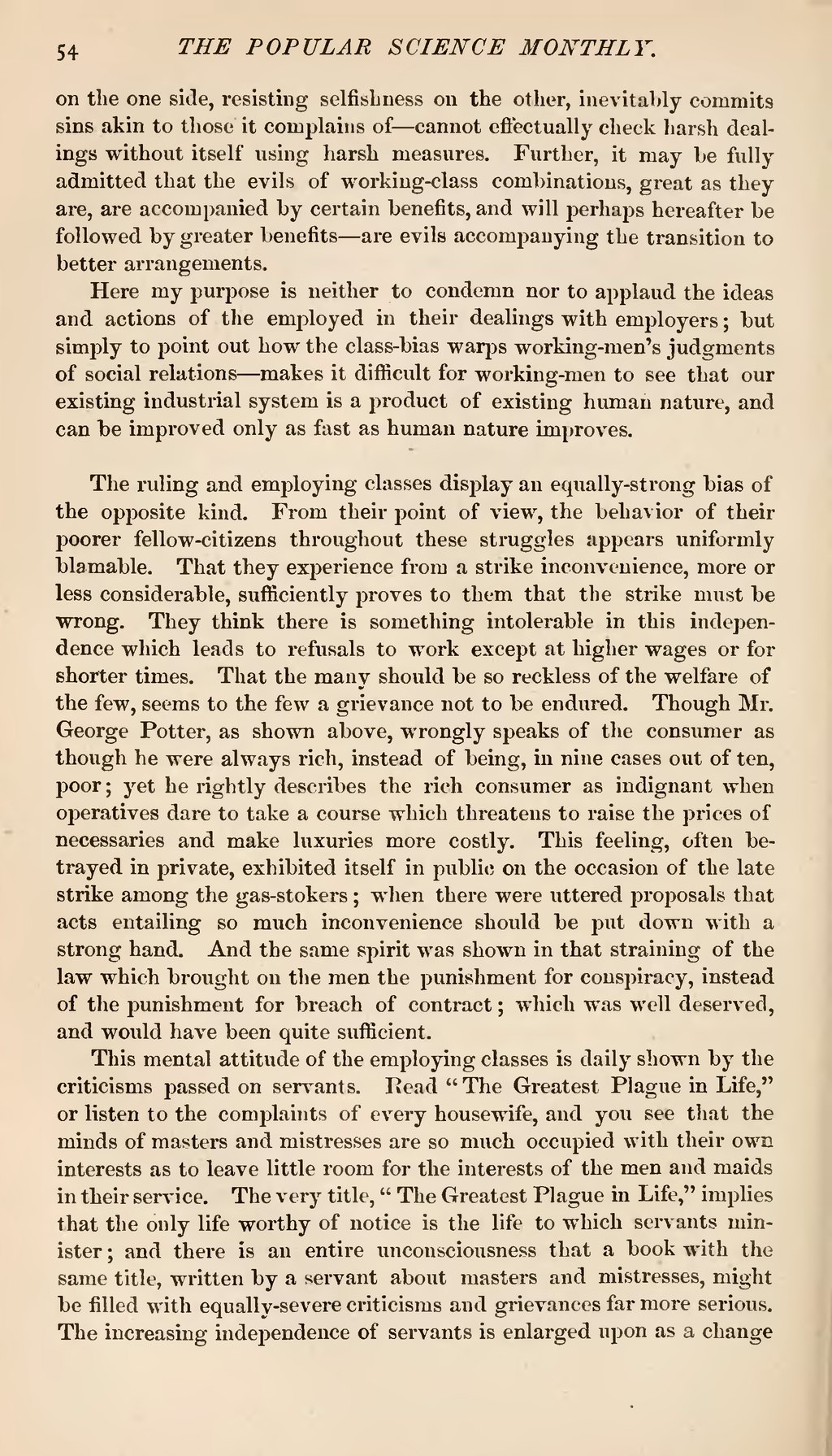on the one side, resisting selfishness on the other, inevitably commits sins akin to those it complains of—cannot effectually check harsh dealings without itself using harsh measures. Further, it may be fully admitted that the evils of working-class combinations, great as they are, are accompanied by certain benefits, and will perhaps hereafter be followed by greater benefits—are evils accompanying the transition to better arrangements.
Here my purpose is neither to condemn nor to applaud the ideas and actions of the employed in their dealings with employers; but simply to point out how the class-bias warps working-men's judgments of social relations—makes it difficult for working-men to see that our existing industrial system is a product of existing human nature, and can be improved only as fast as human nature improves.
The ruling and employing classes display an equally-strong bias of the opposite kind. From their point of view, the behavior of their poorer fellow-citizens throughout these struggles appears uniformly blamable. That they experience from a strike inconvenience, more or less considerable, sufficiently proves to them that the strike must be wrong. They think there is something intolerable in this independence which leads to refusals to work except at higher wages or for shorter times. That the many should be so reckless of the welfare of the few, seems to the few a grievance not to be endured. Though Mr. George Potter, as shown above, wrongly speaks of the consumer as though he were always rich, instead of being, in nine cases out of ten, poor; yet he rightly describes the rich consumer as indignant when operatives dare to take a course which threatens to raise the prices of necessaries and make luxuries more costly. This feeling, often betrayed in private, exhibited itself in public on the occasion of the late strike among the gas-stokers; when there were uttered proposals that acts entailing so much inconvenience should be put down with a strong hand. And the same spirit was shown in that straining of the law which brought on the men the punishment for conspiracy, instead of the punishment for breach of contract; which was well deserved, and would have been quite sufficient.
This mental attitude of the employing classes is daily shown by the criticisms passed on servants. Read "The Greatest Plague in Life," or listen to the complaints of every housewife, and you see that the minds of masters and mistresses are so much occupied with their own interests as to leave little room for the interests of the men and maids in their service. The very title, "The Greatest Plague in Life," implies that the only life worthy of notice is the life to which servants minister; and there is an entire unconsciousness that a book with the same title, written by a servant about masters and mistresses, might be filled with equally-severe criticisms and grievances far more serious. The increasing independence of servants is enlarged upon as a change
